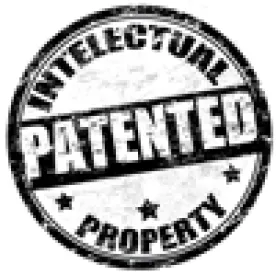Takeaway: If information relating to a presentation at one or more meetings is alleged to constitute a prior art publication, Petitioner must allege, and provide supporting evidence sufficient to show, that the relied-upon information was distributed “without restriction” to at least some of the attendees.
In its Decision, the Board denied Petitioner’s Request for Rehearing of the Board’s Decision denying Institution of inter partes review of claims of the ’580 patent. At issue was the Board’s conclusion in its Decision that certain materials alleged by Petitioner to be prior art were not sufficiently made available to the public.
Petitioner alleged in its Request that the Board had overlooked controlling legal authority set forth in the case of Massachusetts Institute of Technology v. AB Fortia,774 F.2d 1104, 1109 (Fed. Cir. 1985). The Board disagreed, indicating that rather than overlooking such authority, the facts for the instant proceeding differed from those in the instant proceeding. Such differences, according to the Board, caused the Board to reach a conclusion different than the one arrived at in Massachusetts Institute.
More particularly, in Massachusetts Institute, a paper was orally presented at a meeting in Birmingham, Alabama, attended by between 50 and 500 cell culturists. Copies of the Birmingham paper were distributed after the meeting upon request and without any restriction “to as many as six persons, more than one year prior to the filing date of the patents at issue.” The Federal Circuit held in Massachusetts Institute that such activity constituted prior publication, and hence prior art, against the asserted patents.
But in the present case, the Board found that the evidence submitted by Petitioner did not sufficiently show that the relied-upon Draft Standard (draft of a proposed IEEE Institute of Electrical and Electronics Engineers Standard) had been presented or distributed “without restriction.” The Board also found that providing the Draft Standard on the Working Group’s servers did not constitute publication, because the files at issue were protected by passwords provided to a limited group of interested individuals. Moreover, no evidence sufficiently showed that any Working Group meeting was announced to the public or otherwise beyond members of the Working Group. Also, the cover page of the Draft Standard indicated that reproduction of any portion of the Draft Standard would require a license by any interested members of the public. Thus, the Board found that unlike the documents in Massachusetts Institute., the Draft Standard in the present case was not distributed “without restriction,” and thus did not constitute a prior art publication.
Samsung Electronics Co. Ltd., Samsung Electronics America, Inc., Samsung TelecommunicationsAmerica, LLC, and Samsung Austin Semiconductor, LLC v. Rembrandt Wireless Technologies, LP, IPR2014-00514
Paper 20: Decision Denying Request for Rehearing
Dated: October 24, 2014
Patent 8,023,580 B2
Before: Jameson Lee, Howard B. Blankenship, and Justin Busch
Written By: Blankenship



 />i
/>i

